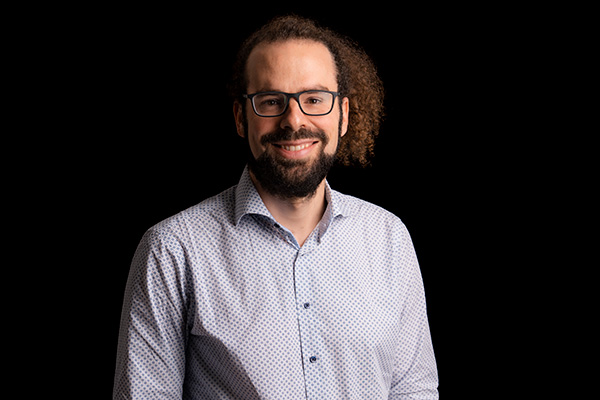Christian Majenz
Research leader

Project title
Idealized Models for Provably-Secure Practical Post-Quantum Cryptography (IM-3PQC)
What is your project about?
In this project I will, together with two PhD Students, develop mathematical methods for analyzing cryptographic algorithms in a quantum computing setting. We will then use these methods for writing mathematical proofs for the fact that certain important cryptographic algorithms, like, for example, digital signatures and so-called hash functions, are secure despite being under quantum computing attack. In this way, we contribute to prepare IT security for the quantum computing age.
How did you become interested in your particular field of research?
I have always been interested in mathematics and natural sciences. I was already fascinated by mathematical methods and proof while I was still in high school. While my professional focus was on physics and quantum theory during my undergraduate studies and most of my PhD at Copenhagen University, I developed a side interest in cryptography and IT Security. Since then, I have combined my interests by focussing my research on quantum-secure cryptography.
What are the scientific challenges and perspectives in your project?
I this project, we want to use mathematics that has been known for a long time but has not been used for the analysis of quantum-secure cryptography. It is part of what defines research as such that once we move into new terrain like this, we don't know exactly if, and how, we will reach our goal. I might even happen that we need to develop new results in the mathematical theory we would like to use.
What is your estimate of the impact, which your project may have to society in the long term?
In modern society, we rely on digital tools and services a lot. In many cases, these digital helpers have become essential to an extent where society cannot function anymore without them. Examples include, e.g., card payments and the Danish MitID system. All these services are secured using cryptography. It is therefore essential that secure cryptographic algorithms remain available once the effort of building quantum computers succeeds. We, the cryptographic research community, therefore works hard to develop and analyze quantum-secure algorithms, and this project contributes to that effort.
Which impact do you expect the Sapere Aude programme will have on your career as a researcher?
I have started as an Assistant Professor at DTU less than two years ago. Therefore I am in the process of starting a research group for the first time. Many researchers have more good ideas than they can follow up on just by themselves, and I am one of them. The Sapere Aude grant will be a unique opportunity to get some extra helping hands (or, rather, brains) to work on these ideas.
Background and personal life
In addition to being a researcher I am also a family person. On many days, I leave the office at 15:30 to pick up my daughter at her kindergarten. It can be a challenge when research and family compete for my time, but I am convinced that it should be possible to find time for both. In addition, I am also a passioned home cook. During corona lockdown for example, I learned how to make french sauces.
View all research leaders here
Research institution
Technical University of Denmark
Research field
Computer Science
City of your current residence
Copenhagen
High school
Freie Waldorfschule Heidelberg
